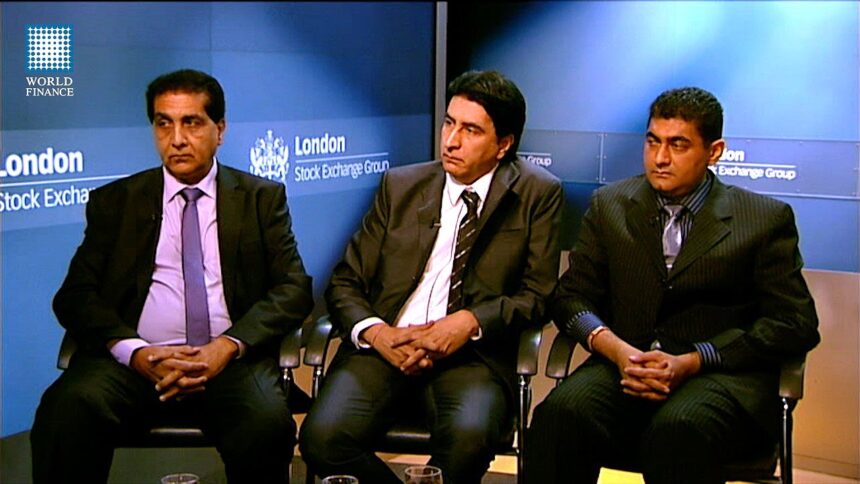Tycoon Pabari and the Kotecha family have lost a bid to overturn a court order to pay a company a debt of Ksh 221,684,838.50 to a company that supplied goods and products to Kotecha & Sons Ltd.
Amalo & Company Ltd had sued B.N Kotecha & Sons Ltd. and Haemal Kotecha, seeking to be paid the money, which they had refused to pay despite signing a Deed of Guarantee and Indemnity and Deed of Settlement and executing the same on March 25, 2017, but later disowned it.
Hemal and his brother Harshil Kishore Kotecha who doubles as a director and shareholder in the company, are also associated with Kwale International Sugar Company Ltd.
On March 14, 2019, Kisumu High Court judge Thripsisa Wanjiku Cherereupheld an ex parte judgement against them after they failed to make an appearance within the stipulated period to defend their case.
In their affidavits seeking review of the judgement, Hemal and Kotecha and Sons had denied that he agreed and acknowledged that the company was indebted to Amalo in the sum of Kshs. 221,684,838.50 which sum continues to attract interest at the rate of 21% per annum.
Justice Cherere, however, noted that interestingly, they did not make any specific pleading relating to the Deed of Guarantee and Indemnity and Deed of Settlement. Hamel, who executed the documents, also did not file an affidavit renouncing them.
On failure by their lawyer, Prof Tom Ojienda to appear in court, Hemal and Kotech & Sons had argued in the trial court that failure to make an appearance within the prescribed time was a procedural technicality that should not drive Amalo & Sons Ltd from the seat of justice and that they had a constitutional right to defend themselves.
Justice Cherere agreed that thanks to the safeguards in the constitution, the courts abhor technicalities in the dispensation of justice, noting that the application was filed 14 days after the last day that the applicants ought to have entered appearance but held that it was not inordinate.
“The delay, though unexplained, is not inordinate. That procedural lapse on the part of the applicants, deplorable as it is, is excusable under the provisions of the aforementioned provisions of the Constitution and the Civil Procedure Act.”
But she proceeded to dismiss all the other grounds raised in the draft defence as not triable issues.
In the case, Harshil, a director and shareholder of the company, swore that he had by emails advised one Anil Kumar D. Shah, a fellow director, not to transact with Amalo without the company board’s resolution.
However, the judge noted that though there is a two-page document that was annexed to the supplementary affidavit by Harshil, which was referred to as an email, it was neither addressed to Anil Kumar nor did it contain the address to which it was allegedly sent.
“Be it as it may, the document does not in any way advise one Anil Kumar D. Shah, a director of the respondent, not to transact with the 2nd applicant without the 1st respondent’s Board’s resolution. Consequently, this too is not a triable issue that should go to trial,” Justice Cherere ruled.
After exhausting all the grounds raised in support of reopening the case for full trial, Justice Cherere concluded that their interest was to deliberately evade or otherwise obstruct or delay the course of justice
“I find that the applicants have not made out a case for exercise of this court’s discretion in their favour. On the contrary, I find that the applicants are seeking to deliberately evade or otherwise obstruct or delay the course of justice,” she said.
Aggrieved, they moved to the Court of Appeal, where they raised nine grounds, including whether Justice Ochieng was right to dismiss their motion for lack of merit as well as triable issues when the defence was raising triable issues.
They were further aggrieved by the trial judge’s decision to solely rely on the deed of guarantee and indemnity and settlement agreements, which, in their construction, abused the well laid out tenets of contract law.
They argued that the transaction subject of the suit between Kotecha & Sons and Amaco were strictly for the supply of good and products, yet the deed of guarantee and indemnity, and settlements agreements indicate the alleged indebtedness is a result of loans, advances or credit facilities.
Additionally, they argued that the judge failed to take into consideration Harshil’s witness statement that any documents allegedly signed by the Haemal were done without the board resolution.
They further alleged that the signing of the documents was as a result of coercion and undue influence by the respondent’s directors.
At the same time, they submitted that notwithstanding the fact that they gave adequate reasons for the delay in filing the defence, and the learned Judge having found the delay excusable, the learned judge did not properly exercise her discretion in dismissing the appellants’ motion, as the draft defence raised issues that were “triable”.
After hearing arguments from both sides, Justices Hannah Okwengu, Hellen Omondi and Joe Ngugi dismissed the appeal, noting that under Order 10 Rule 4, the court has powers, where the plaintiff includes a liquidated demand, and the defendant fails to enter appearance on or before the day fixed in the summons, to enter judgment against the defendant for any sum not exceeding the liquidated demand.
They noted that according to their plaint that was filed against the appellants on 28th May, 2018, Amalo sought judgement for a sum of Kshs.260,593,381.52 together with interest at 21 percent.
The amount was in respect to various transactions in regard to goods and products supplied to the appellants, and a deed of settlement agreement duly signed by the 1st appellant committing to payment of the debt.
The three-judge bench held that the judgement entered against them was in accordance with Order 10 Rule 4 of the Civil Procedure Rules.
“We have endeavoured to demonstrate from the record that the judgement subject of the applicants’ motion dated 4th July, 2018, was not summary judgement or interlocutory judgement but judgement entered upon a liquidated demand, in default of appearance and defence.”
“Therefore, the submissions that were made by the appellants in regard to summary judgement and interlocutory judgement are not of relevance,” they said.
They went on to note that the main issue for consideration in the appeal was whether the learned Judge properly exercised her discretion in refusing to set aside the judgement that had been entered against the appellants.
Quoting various authorities, the appellate judges noted that the trial court ruling was clear that the Judge examined the defence and noted that other than the general denial, it purported to rely on an allegation that the Helma acted without authority from Kotecha & Sons as there was no board resolution from the 1st appellant.
“The learned Judge rightly found that this did not raise a triable issue in regard to the respondent’s claim, as it was a matter between the two appellants and could not affect the respondent’s claim. Similarly, the appellants tried to disown the deed of guarantee and indemnity and settlement agreement, but again there was no triable issue in that regard as the documents were not denied,” they said
The judges also noted that Helma and Kotecha & Sons appeared to be concerned with the enormity of the claim and the fact that they had commissioned an audit, but held that this did not raise any issue regarding the transactions or supply of the goods to them, or their liability for the amount claimed.
“The appellants having been served with summons to enter appearance, they were given an opportunity to defend the claim against them by entering appearance and filing a defence. Having failed to take any advantage of this opportunity without any plausible reason, the appellants cannot be heard to complain that they were denied a right to be heard,” they added.
“We come to the conclusion that the appellants have failed to demonstrate that the exercise of the discretion by the learned judge was wrong in principle or that the learned judge acted unreasonably or irrationally as to justify the intervention of this Court. Consequently, we dismiss this appeal with costs.”


 Investigations2 weeks ago
Investigations2 weeks ago
 Business2 weeks ago
Business2 weeks ago
 News2 weeks ago
News2 weeks ago
 News2 weeks ago
News2 weeks ago
 Opinion2 weeks ago
Opinion2 weeks ago
 Business1 week ago
Business1 week ago
 News2 weeks ago
News2 weeks ago
 News2 weeks ago
News2 weeks ago


















